My name is Jan Willem van Dijk, I designed ‘Clash d’Ardèche – Campground Tycoon’, the game that might be your only chance of owning a campground in France yourself.
Sitting in front of my tent during vacation in France, I became aware of a deep, heartfelt wish to start a campground myself. After lingering on it for I while, I dismissed this dream. After all, it would be too complex to realize. But slowly the way it could actually happen forced itself upon me: in a boardgame it could! Little did I know of the even greater complexity…
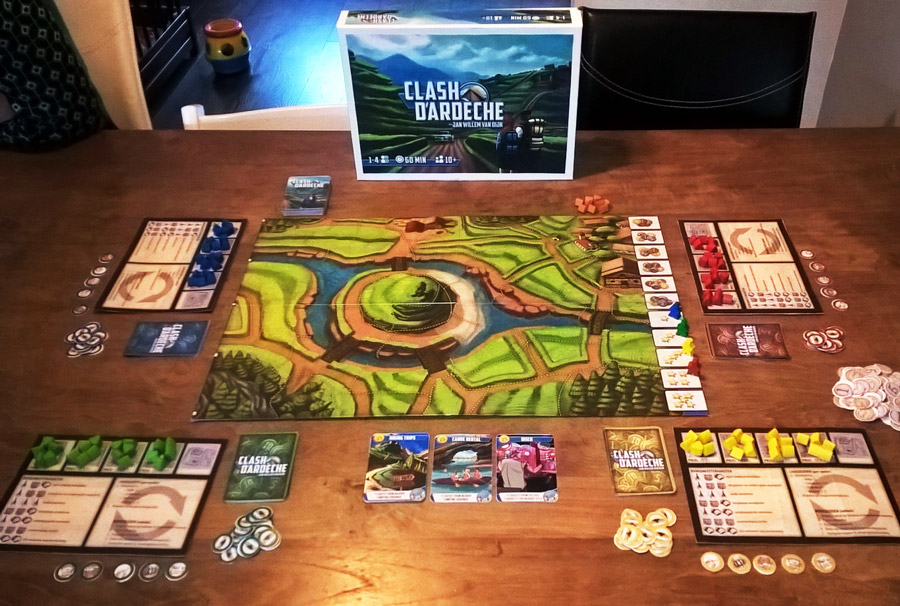
Relaxing on that camping ground in France, I thought about the elements that just had to be added to this new game. Obviously there had to be event-cards, such as:
"You invite the mysophobia-association to stay on your camping ground. Naturally they bring their own cleanup-team. Sanitary + 1"
And of course a nuclear reactor. Just because. The risk of a meltdown would be fun, wouldn’t it?
Also it seemed just fitting of integrating the chance of spotting the very rare speckled pintail tit. The conservation bureau would then lock down a site of your campground. Which meant I also needed to add a hunter to the game to protect yourself from this dreadful event.
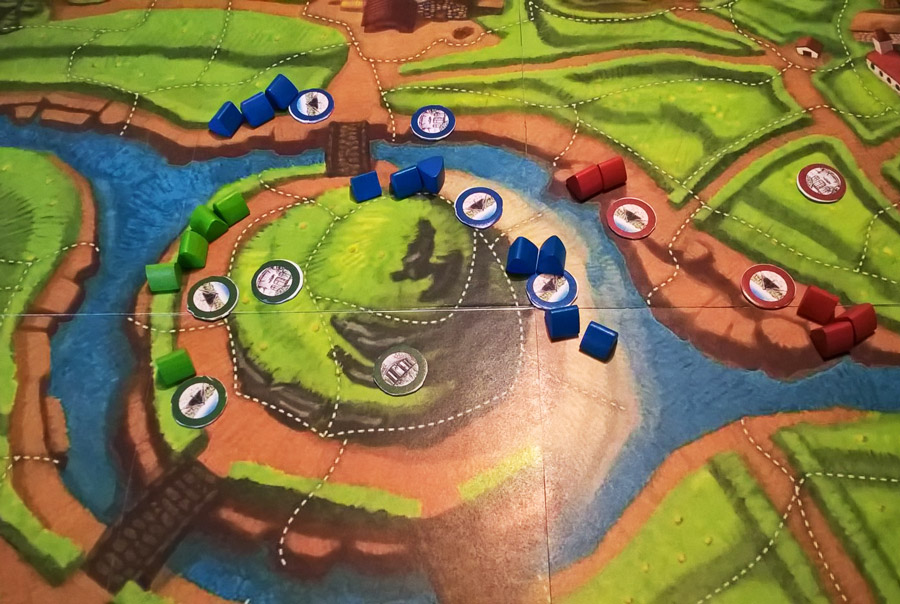
Testing sessions with friends that sometimes reached the hilarious level because of all the funny events, the unclear rules and the adjusting of them at the same time. But mostly the testing was characterized by a lack of flow and dynamics. Some elements in the game added to the suspense and involvement of the players, but the game mainly was just doing all these not-connected ‘funny’ actions.
To solve this and canalize all these different elements (nuclear reactor, spotted pintail tit, event-cards) I added a dice that indicated the executable action. However this certainly was NOT the solution. On the contrary, it added luck to the game which caused disillusion and disappointment. The players wished to determine the development of their camping grounds themselves and not by the dice.
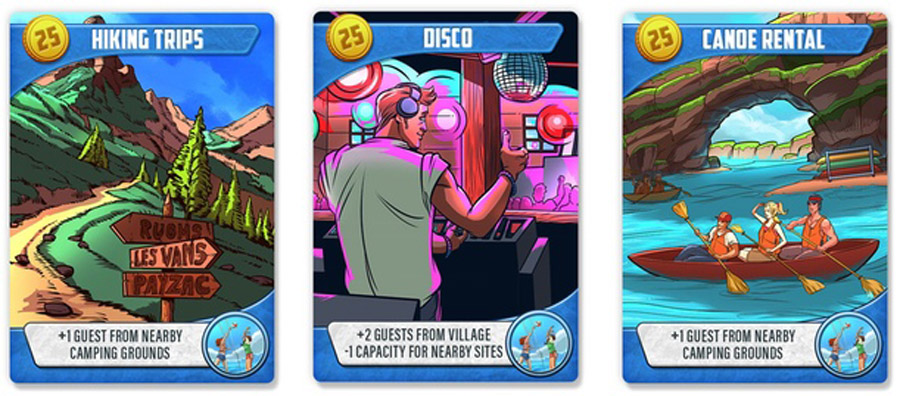
This all gave way to an inevitable conclusion: get rid of all those superfluous elements in the game. Only the element that added to the suspense and tactical depth could stay: the price-quality steps.
This mechanic operated A.I.-like, so the campground guests determined on their own to which campground they would like to go. Guests could be influenced by the players by either upgrading the facilities of their camping ground or downgrading the price asked.
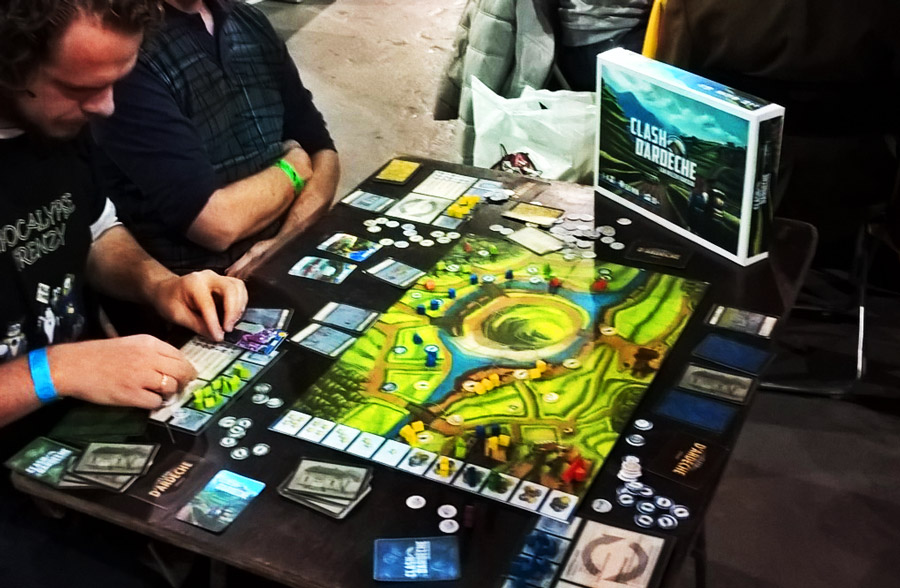
The execution of this mechanic also was the most valued moment in the play sessions, because of the bluffing element. Players predicted for themselves the prices asked by the other players and adjusted their own likewise.
The mechanic in its core was simple yet effective. For every extra campground-star you move one step down, for every higher price one step up. If the difference between players is more than one step, guests will move.
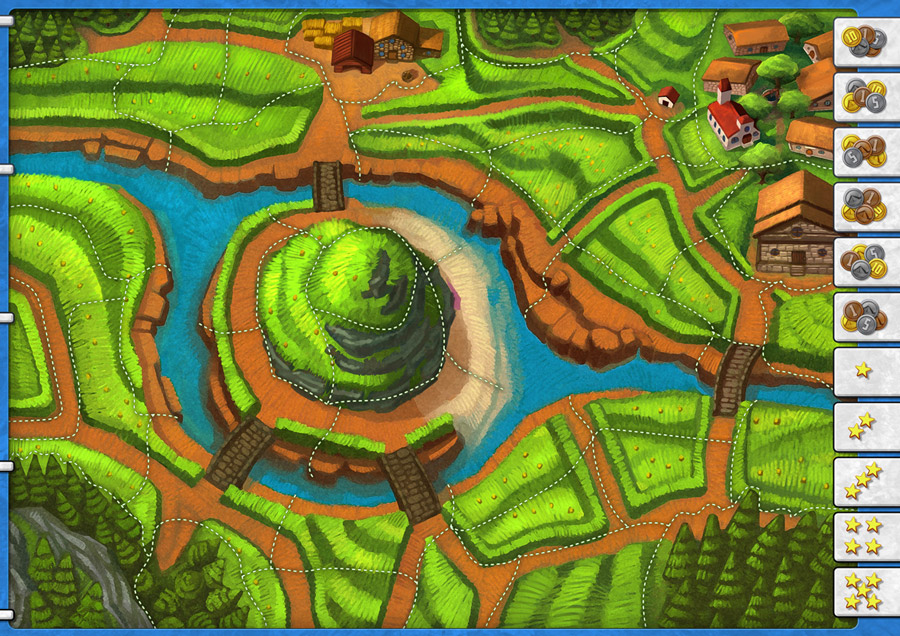
This mechanic now was the core of the game and in the brainstorm sessions we now focused on intensifying this mechanic, the price-quality steps. Not only because of streamlining the game and enhancing the flow-experience, but mostly because this mechanic was the fun-booster of the game. The simple fact that your guests decided for themselves where to go really drew players into the game.
How to strengthen this mechanic was easily found. The camping bosses were ranked in order of price-quality rating. The upper player would be the starting player in the next round. The lower player would get the much desired travel guide reference. Two references would bring you many more guests the next season.
The result of this new mechanic-first approach was that we no longer focused on the so called ‘funny’ elements of the game (nuclear reactor, spotted pintail tit, event-cards). The positive effect of this choice was clear: the game really was strengthened with tactical depth, suspense and player interaction. Because of the centrality of the core mechanic, the game A.I., several tactical approaches were made possible. Will I ask a high price from my guests and calculate with the departure of some? Or will I ask a low price, have little revenues yet travel guide references? Player interaction during playtest sessions was very high on this moment in the game. Based on body language and game position players tried to estimate the price asked by their competitors.
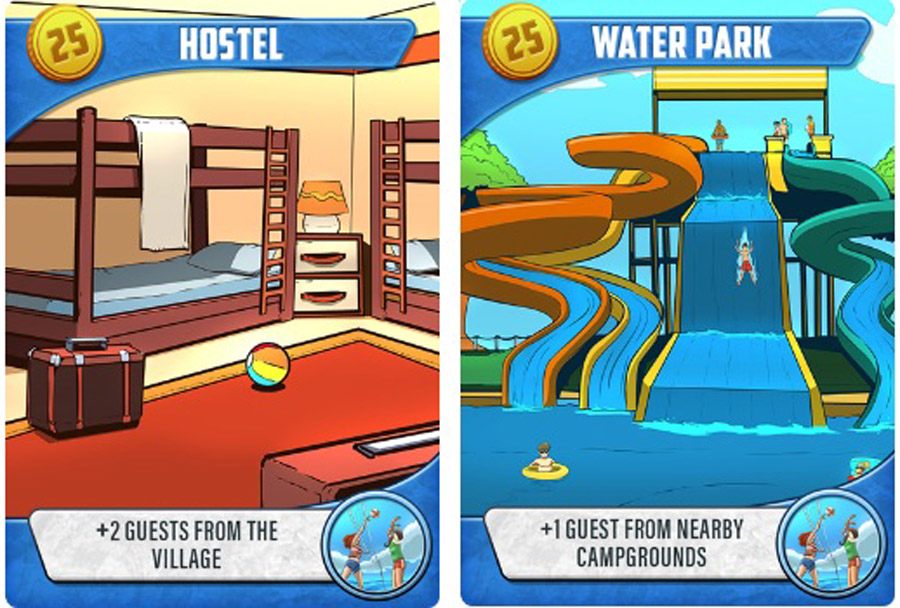
After some more playtest sessions it was noticed that some more finetuning on the gameboard-interaction would complete the player experience. Players had to build their own camping ground, bearing in mind that their guests didn’t want to walk long distances to the swimming pool and the sanitary and so on. And because of the possibility of your guests using the facilities of the neighboring camping ground, this was the constant challenge: how to build my camping ground in such a way that I take maximum advantage of the facilities of my competitors? This was a satisfying puzzle in itself.
However, players still wanted a way to use already claimed sites and campground upgrades, such as the disco or water park. Thus the corrupt mayor came to the stage. Via a simple worker-placement mechanic in combination with set collection players could choose whether they placed guests on their camping ground (and receive revenues) or on the house of the corrupt mayor. In the latter case they would receive bribecards: wine, cigars or jewellery. Different combinations of these would gain them favors from our beloved mayor.
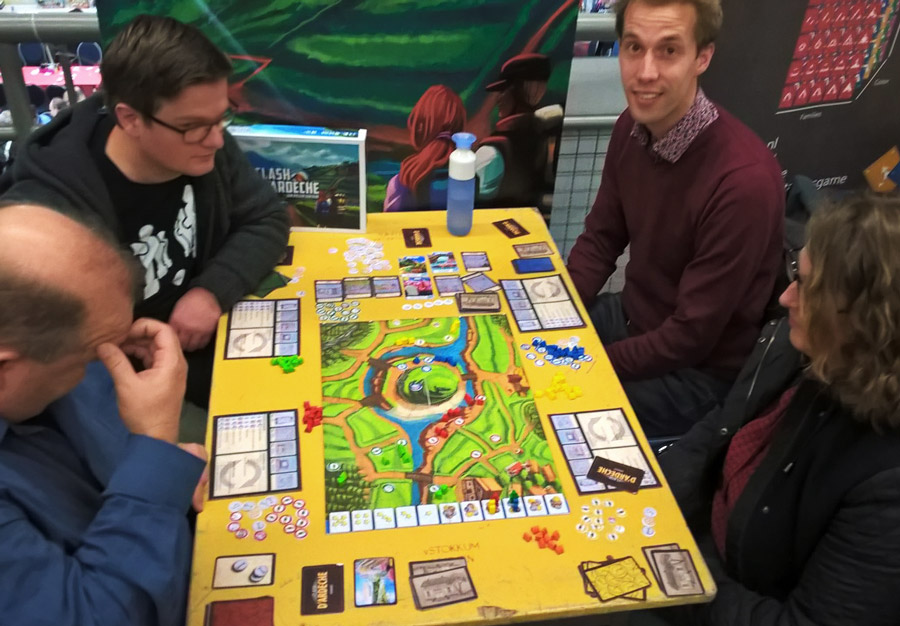
With this prototype, I went to some different gaming conventions in the Netherlands. Playing the game with experienced players gave me some valuable ideas for further development. The interesting thing was that this further tweaking of the game consisted of simplifying the rules. All exceptions were removed. Superfluous actions, like returning the guests to your player board every season added little to the gameplay. Instead, it disturbed the flow of the game. Also an element of the gameplay was moved to the expert-version, resulting in an easy to learn, hard to master basic game.
What I’ve learned of this whole design process is to let the mechanic come forth out of your theme and then focus on that mechanic. It will deepen the game experience and enrich it with tactical possibilities, thus enhancing the joy of gaming. This will also ensure replayability, because of the rich palette of choices and ways to victory.
Currently, the game is funding on Kickstarter. So my own campground along the river Ardèche is not yet realized, but very close!
Did you like this story? Please share or comment. Go to this page to submit a story yourself. Subscribe to our online magazine here!

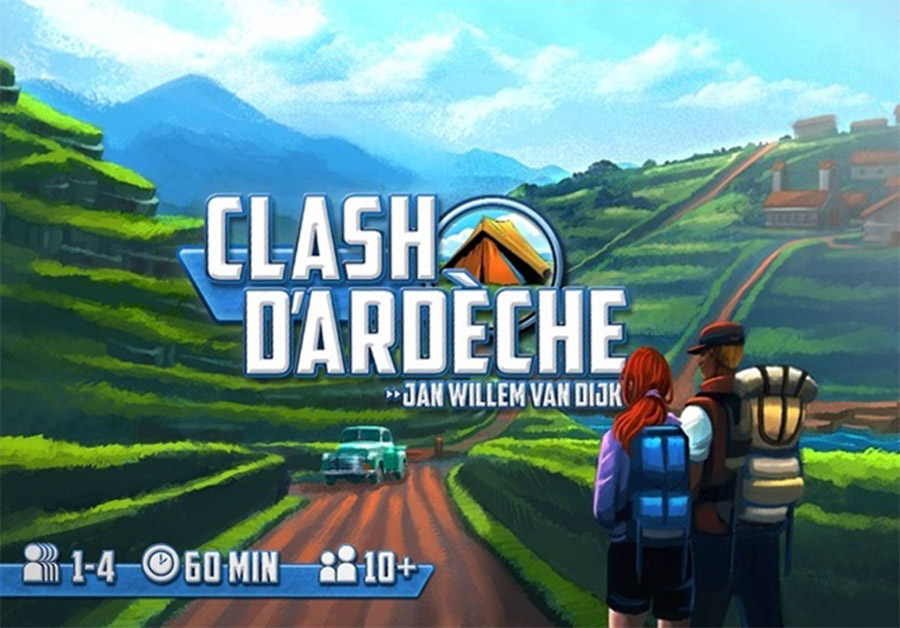
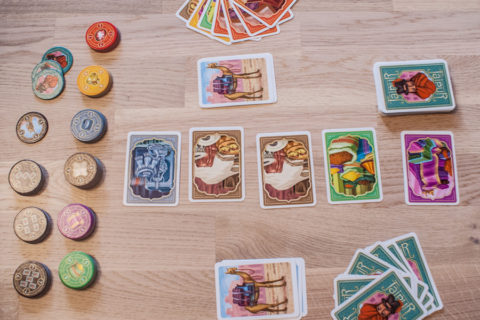
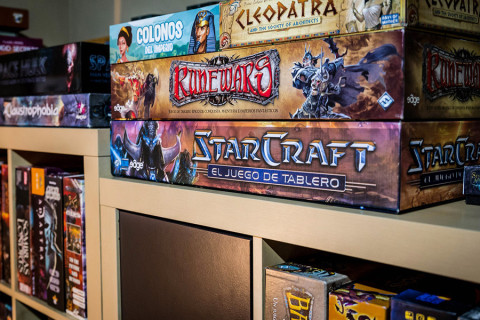
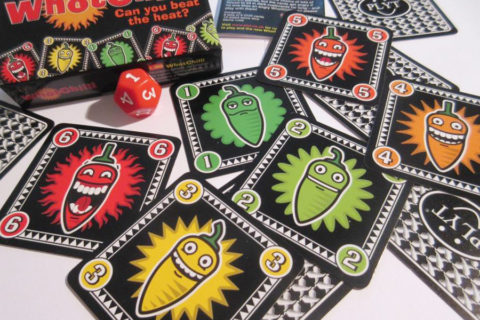
Your point of view caught my eye and was very interesting. Thanks. I have a question for you. https://accounts.binance.com/zh-TC/register?ref=IJFGOAID
Thanks for shening. I read many of your blog posts, cool, your blog is very good. https://accounts.binance.com/en/register?ref=P9L9FQKY
It’s a game. Five dollars is free. Try it It’s not an easy game
->-> 온라인카지노 .COM
It’s a game. Five dollars is free. Try it It’s not an easy game
->-> 카지노사이트
Thanks for sharing. I read many of your blog posts, cool, your blog is very good.
Thanks for sharing. I read many of your blog posts, cool, your blog is very good.
Thanks for sharing. I read many of your blog posts, cool, your blog is very good.
Thanks for sharing. I read many of your blog posts, cool, your blog is very good.
Your article helped me a lot, is there any more related content? Thanks!
flush factor plus scam: flush factor plus scam
venoplus 8 scam: venoplus 8 scam
denticore scam: denticore scam
arctic blast scam: arctic blast scam
ProDentim scam: ProDentim scam
Gluco Extend scam: Gluco Extend scam
Java Burn scam: Java Burn scam
Your point of view caught my eye and was very interesting. Thanks. I have a question for you.
Can you be more specific about the content of your article? After reading it, I still have some doubts. Hope you can help me.
Thank you, your article surprised me, there is such an excellent point of view. Thank you for sharing, I learned a lot.